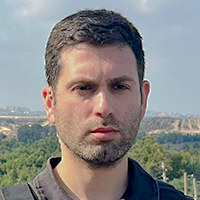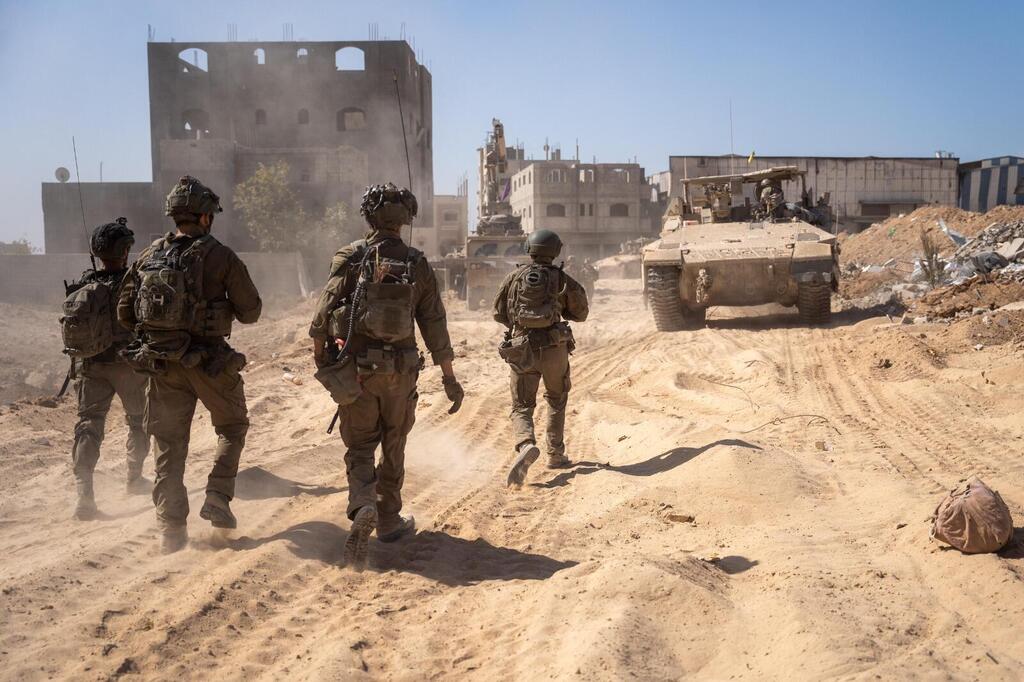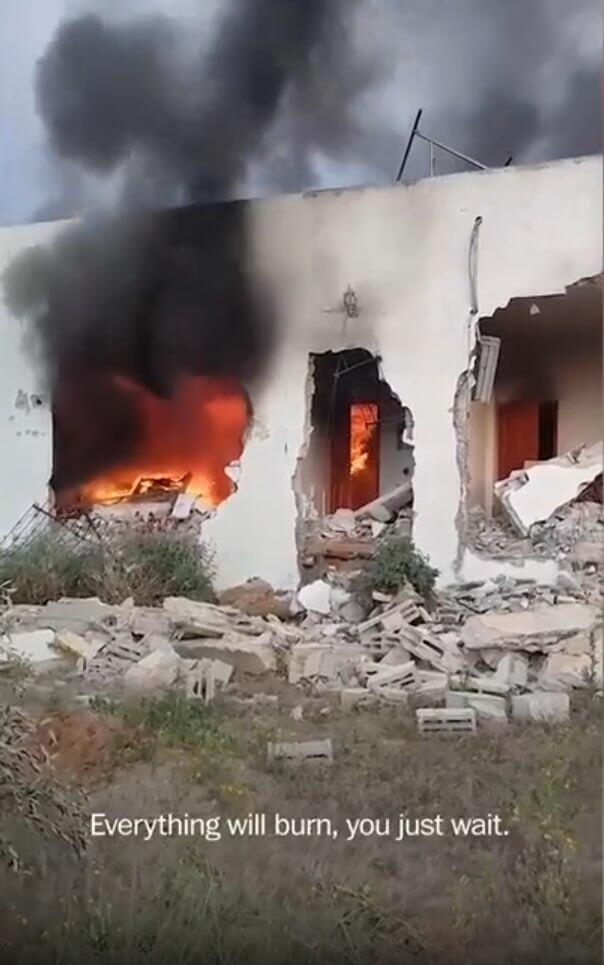Getting your Trinity Audio player ready...
The IDF estimates that the decision by the International Criminal Court (ICC) in The Hague to issue arrest warrants for Prime Minister Benjamin Netanyahu and former defense minister Yoav Gallant could to arrests and other legal actions worldwide against senior military officers, as well as mandatory service and reserve soldiers who fought in the Gaza Strip. Some soldiers have already been required to leave countries they visited due to concerns about legal proceedings.
The IDF has identified about 30 cases of criminal proceedings initiated against its members. At least eight soldiers, including some who had traveled to Cyprus, Slovenia and the Netherlands, were forced to leave immediately.
Footage of IDF soldiers in Gaza
(Video: Washington Post)
While the IDF has not imposed a blanket travel ban for personnel, even during the ongoing war, it is implementing a “risk assessment” process for soldiers seeking to travel abroad. The assessment focuses particularly on combat soldiers and commanders who operated in Gaza.
This policy follows the issuance of unprecedented arrest warrants for Netanyahu and Gallant, placing them alongside figures like Russian President Vladimir Putin and former Serbian president Slobodan Milošević, who have been accused of war crimes.
Despite strict prohibitions against posting footage of operations in Gaza, many combat soldiers—both active and in reserves—have shared such content online. This has provided anti-Israel organizations with material to compile "blacklists" of IDF soldiers. Dozens of pro-Palestinian groups, primarily operating out of Europe but with a global network of representatives, collect this information to target IDF personnel.
These organizations publish the names and photos of IDF combat soldiers online and monitor their social media posts, hoping to identify future travel plans. When they do, they file complaints with local prosecutors or submit personal petitions to courts in those countries to initiate investigations or delay the soldiers’ departures.
As a result, soldiers planning vacations abroad are advised to avoid posting their locations publicly, minimizing the risk of becoming targets for anti-Israel activists and potential legal or security complications.
Assessing the risk
The Military Prosecutor's Office believes that prosecutors in The Hague are unlikely to pursue cases against soldiers or junior commanders, as they were acting on battlefield orders. Israel retains the right to investigate and prosecute its military personnel if necessary.
However, concerns remain that the ICC may target senior officers who commanded operations, such as division commanders, the Air Force commander or the chief of staff. While no arrest warrants have been issued against these figures so far, the potential for such actions is considered a significant threat.
"Individual proceedings against soldiers and junior officers traveling abroad could be based on ICC rulings," the IDF said. "To any soldier or officer, if they are arrested, summoned for questioning or feel they are being followed or photographed while abroad, Israel will provide immediate legal assistance through its local embassy or the Foreign Ministry’s situation room."
Israel has hired local legal experts in dozens of countries to monitor changes in legislation and case law related to Israeli officials and military personnel. These lawyers track legal activity against Israelis and, if needed, represent soldiers and officers in those countries.
Get the Ynetnews app on your smartphone: Google Play: https://bit.ly/4eJ37pE | Apple App Store: https://bit.ly/3ZL7iNv
Representatives from Mossad and Shin Bet also participate in an inter-ministerial team that issues periodic assessments on the risk of arrest or interrogation for IDF service members who operated in Gaza. For instance, in South Africa, an IDF soldier holding South African citizenship would likely be detained for questioning.
"In non-ICC member countries such as the U.S., China or India, there is local legislation governing the law of war," the IDF noted. "These nations are not obligated to act on ICC arrest warrants, but local laws could still pose risks."
A report published in The Washington Post on Tuesday included at least 11 pieces of video evidence filmed by IDF soldiers during operations in Gaza over the past year. The footage shows explosions, building demolitions, mass evacuations, fires across the enclave and the detention of partially clothed Gazan residents. It also includes soldiers’ statements describing their missions as "occupy, expel and settle" in Gaza.
The soldiers who appear in the footage were not anonymized, as the videos were posted online by the soldiers themselves. This not only damages Israel's international image but also places the soldiers at personal risk worldwide.
"Legal experts who reviewed the footage noted that many serious cases involve soldiers effectively admitting to and documenting potential violations of international humanitarian law," the IDF said.










